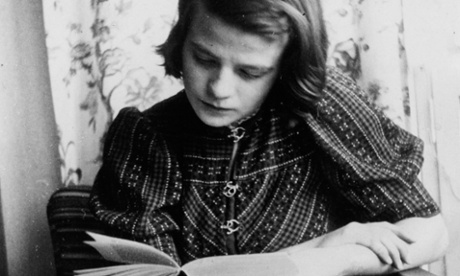
Am I a rebel? Of course not. I’m the hard-working, straight-A student who always came home at the time agreed with her parents. I never wilfully provoked a teacher, never skipped a lesson, was never held back for a detention.
If my school had a yearbook, I would have been “girl least likely to write a book advocating protest.” Yet that is what I’ve done.
The yearbook would also have had me down as “girl least likely to write an alternative second world war history.” But that too is where I’ve ended up.
I didn’t study the second world war at school. I did the industrial revolution. Ask me anything about Isambard Kingdom Brunel and I’ll fill you in. My second world war history comes from the TV I watched growing up: Dad’s Army reruns, ‘Allo ‘Allo and Sunday night dramas. The important characters – English or German – were all men with big moustaches and serious expressions. They were the ones decisively shoving boats across maps of Europe, wielding guns and saving our country.
The women and girls? Well, they were busy waiting, drawing neat pencil lines down the backs of their calves.
This all sat perfectly well with my teenage world view. I too was waiting, just waiting, for adulthood to begin. It would arrive at age 21 maybe, possibly 25, and only then would I have something intelligent to say, something that people might want to listen to. Until that time, I would be good and nice, and work out how to draw neat pencil lines on my upper eyelids.
I wish I was joking.
I watched SNP MP Mhairi Black’s maiden speech in the House of Commons last month and I felt inspired, yes, but also a deep shame. I would never have stood up at 20 years of age and said those things – even thought those things. Politics, I had been led to believe, just like war and big decisions, had nothing to do with me.
So fast forward to 2013, and we’re sitting at the dinner table and my seven-year-old asks me what would have happened if the Nazis had won the second world war. Difficult questions are usually fielded to Google (How many goals has Thierry Henry scored for Arsenal, Mum? What’s the biggest dog in the world?) but this one needed thought. More specifically, it needed a book.
Of course there are plenty of bestselling alternative second world war histories, but they’re all aimed at adults. They’re all written by men about, predominantly, men. When it was suggested to me that I could fill this gap, write an alternative history from a young, female point of view, my first reaction was to laugh.
Who would want to listen to my inexpert views on all this?
Thankfully, I – and I think this is absolutely the best way to put it – got my shit together. The “shit” that says only certain people are allowed to write books about difficult subjects like war, that only certain viewpoints form history are worth telling, that unless you have a degree from the right place on the right subject you best keep your mouth shut.
For certain the most inspiring part of my research for The Big Lie was reading about the women who dared to speak up. Agnès Humbert, a comfortably-off art historian, could have put her head down and kept quiet when the Nazis reached Paris. Instead her diary reads: “I will go mad, literally, if I don’t do something.” Humbert suffered years of gruelling slave labour – with astonishing strength and grace – when she was arrested for distributing anti-Nazi publications.
Again, stories of brave and politically-engaged young people left the deepest scars. German student Sophie Scholl was so enraged by what was happening to her world, so willing to fight, that she lost her life, executed by the Nazis aged 21 for her part in the non-violent anti-Nazi group White Rose.
Even the accounts of young women who had fallen for the regime, filled as they were with regret and shame, contained powerful lessons for us today. Traudl Junge, who served as Hitler’s secretary in her early 20s, admitted repentantly, in her old age, “It was no excuse to be young.”
I cannot go back in time and shake my teenage self awake but I hope in writing The Big Lie I can empower other girls and young readers to feel their views are important, vital even. The road to positive change doesn’t mean you must risk your life – it’s simply believing that you have something important to say and knowing you have the right to say it.
- Julie Mayhew’s The Big Lie is available from the Guardian bookshop.

